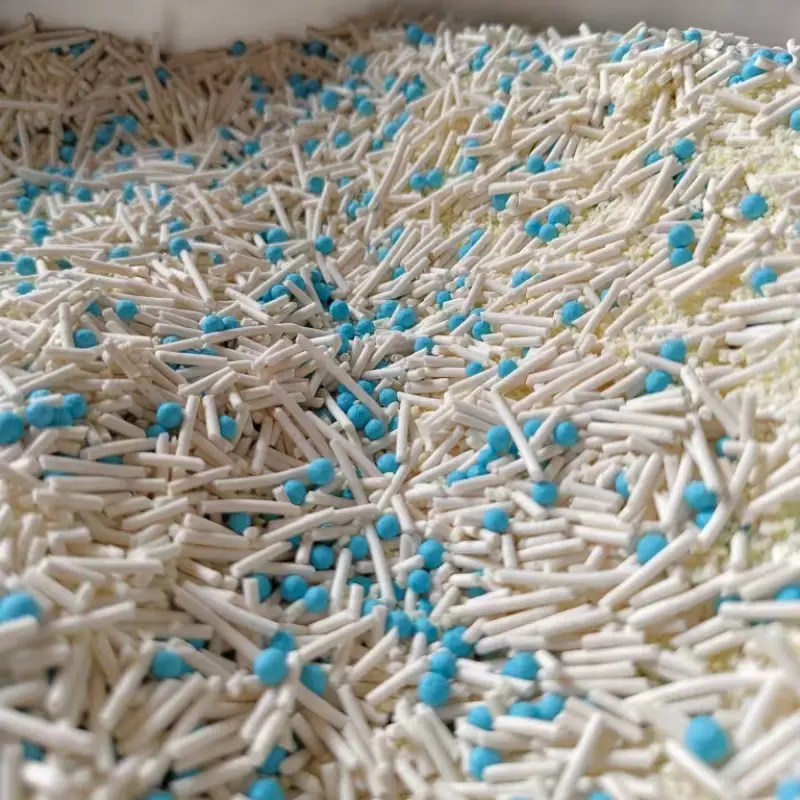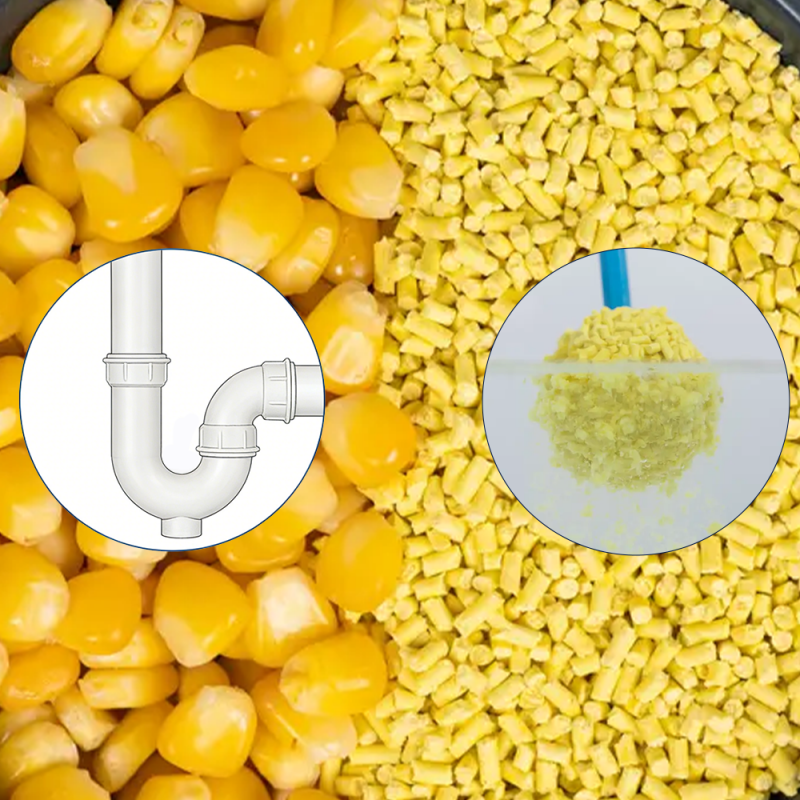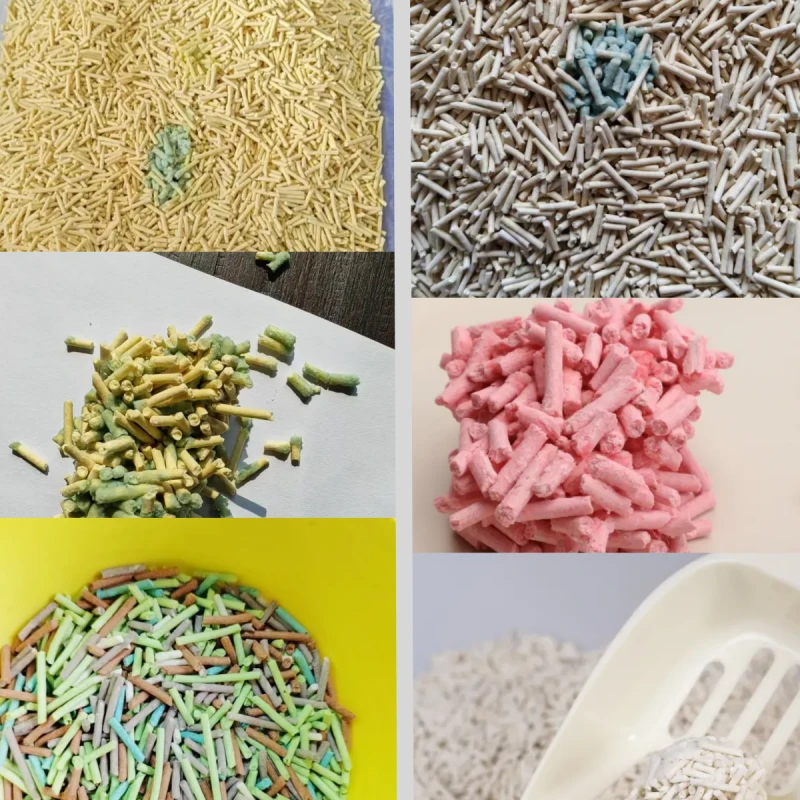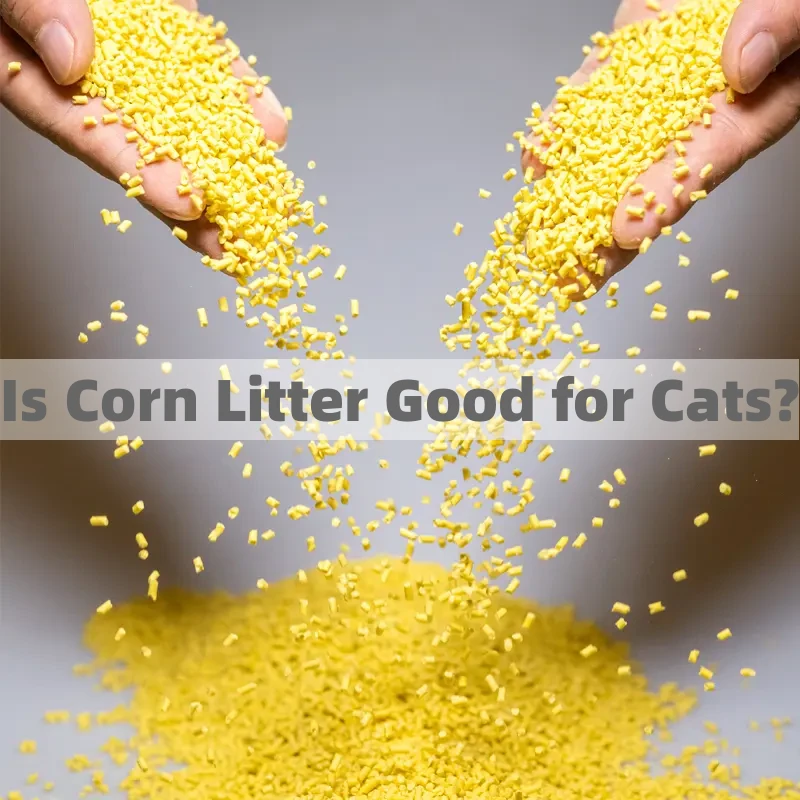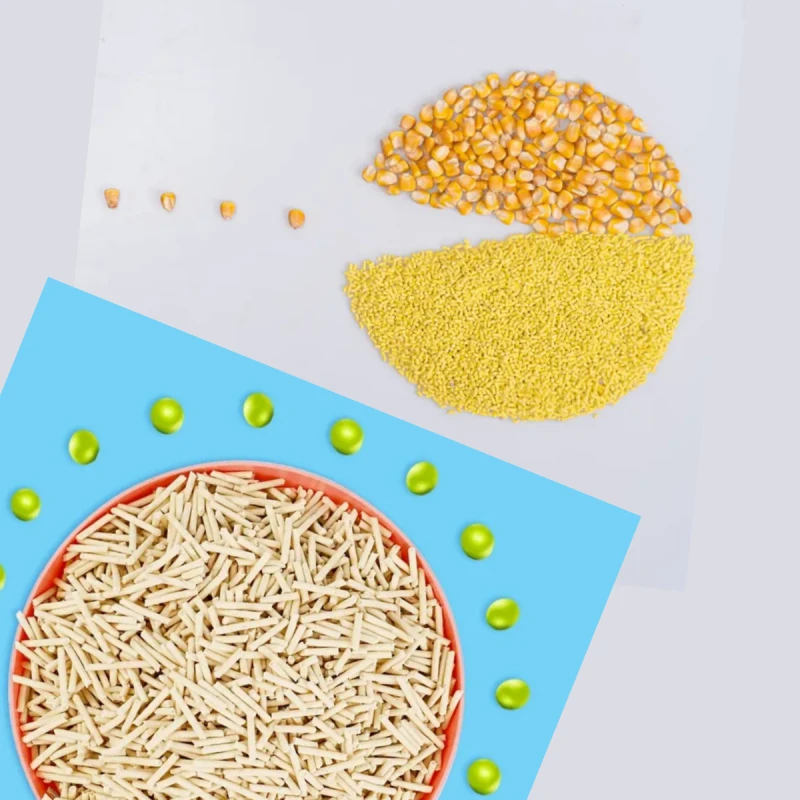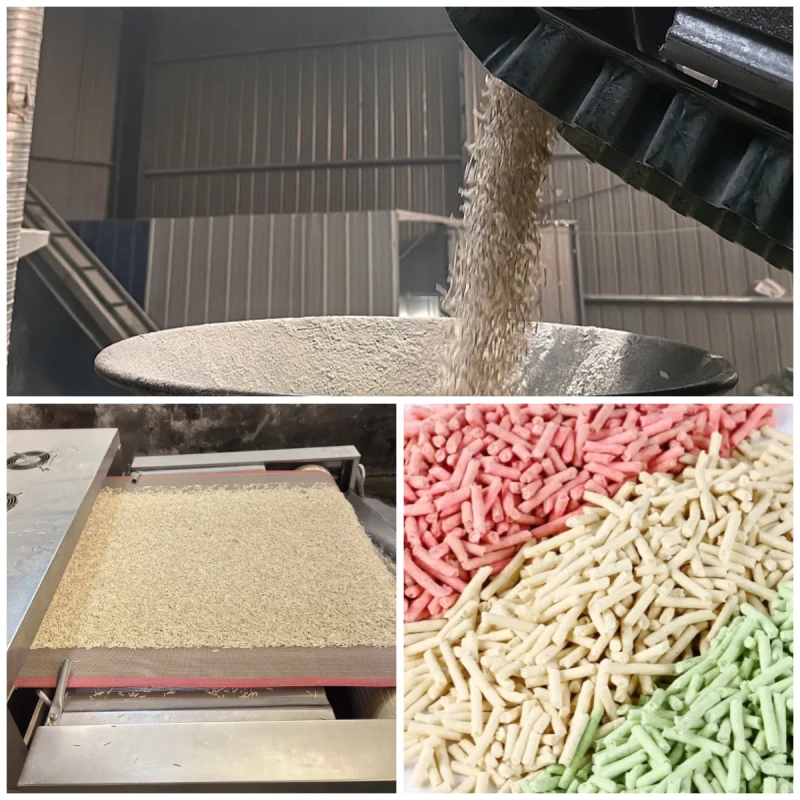When it comes to choosing the perfect cat litter for your furry companion, there are numerous options available on the market. Two popular choices among pet owners are corn cat litter and walnut cat litter. Each type offers unique advantages and characteristics, catering to the diverse needs of cats and their owners.
Corn Cat Litter
Corn cat litter is made from natural corn kernels that have been processed into granules suitable for use in cat litter boxes. This type of litter is known for its exceptional clumping ability, which makes it easy to scoop and clean. Additionally, corn cat litter is highly absorbent, helping to control odors and keep the litter box fresh for longer periods.
One of the main advantages of corn cat litter is its biodegradability. Being made from natural, renewable resources, corn litter is environmentally friendly and can be safely disposed of in compost or waste bins. This makes it an attractive option for eco-conscious pet owners who prioritize sustainability.
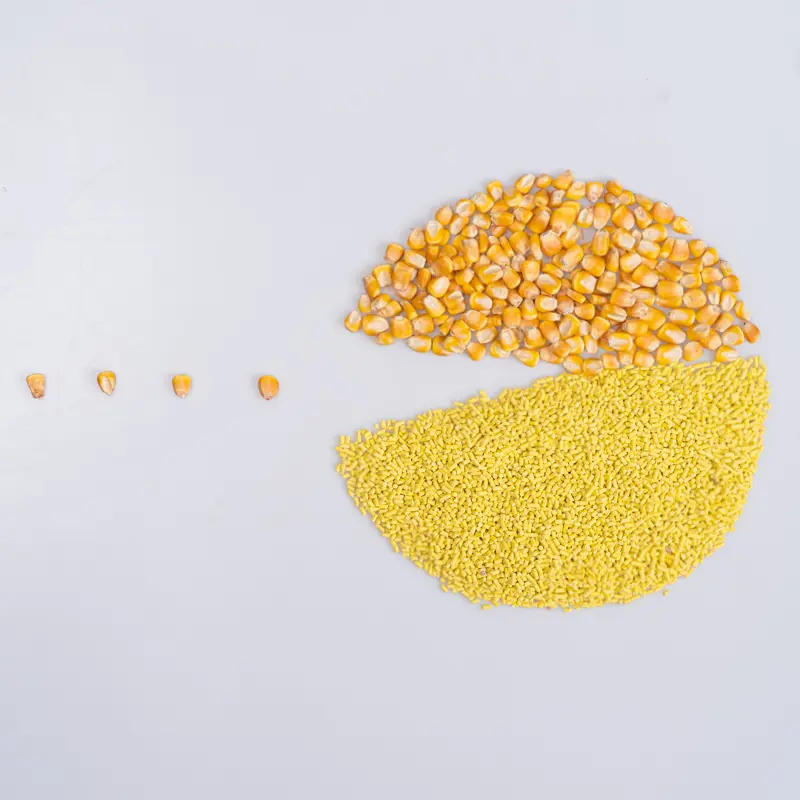
However, corn cat litter may not be suitable for all cats. Some felines may be allergic to corn or sensitive to the dust that can be produced when pouring or scooping the litter. Additionally, corn litter may track more easily than other types of litter, leading to messes around the litter box area.
Now let’s talk about the pros and cons of corn cat litter.
Pros of Corn Cat Litter:
Natural and Renewable: Corn cat litter is made from natural corn kernels, making it an eco-friendly and sustainable option for cat owners who prioritize environmental responsibility. Corn is a renewable resource that can be replenished through farming practices.
Biodegradable: Corn cat litter is biodegradable, meaning it can break down naturally over time, reducing environmental impact. It can be safely disposed of in compost or waste bins, minimizing landfill waste.
Excellent Clumping Ability: Corn cat litter typically forms strong and tight clumps when exposed to moisture, making it easy to scoop and clean. The clumps trap urine and feces, helping to control odors and maintain a fresh litter box environment.
Highly Absorbent: Corn cat litter is highly absorbent, effectively soaking up moisture and preventing it from pooling at the bottom of the litter box. This helps to keep the litter box dry and reduces the risk of bacterial growth and odor buildup.
Dust-Free: Many corn cat litters are formulated to be low-dust or dust-free, minimizing airborne particles that can irritate cats' respiratory systems and cause discomfort for both cats and their owners.
Cons of Corn Cat Litter:
Tracking: Corn cat litter may track more easily than other types of litter, leading to litter being scattered around the litter box area and potentially tracked throughout the home on cats' paws.
Allergies: Some cats may be allergic or sensitive to corn or the dust produced by corn cat litter. This can manifest as skin irritation, respiratory issues, or other allergic reactions in sensitive cats.
Odor Control: While corn cat litter is effective at clumping and absorbing moisture, some users may find that it is not as effective at controlling odors as other types of litter. Additional odor control measures may be necessary for multi-cat households or high-traffic litter boxes.
Expensive: Corn cat litter tends to be more expensive than traditional clay litter or other plant-based litters, which may deter budget-conscious cat owners.
Storage and Shelf Life: Corn cat litter may have a shorter shelf life compared to other types of litter, as it can be susceptible to moisture absorption and spoilage if not stored properly. Additionally, it may attract pests such as insects or rodents if stored in open or unsealed containers.
Specification
Specification | Description |
Granule Size | Common granule sizes range from 1mm to 5mm in diameter. |
Clumping Ability | Forms tight and strong clumps upon contact with moisture. Clumps may vary in size and firmness depending on the formulation of the litter. |
Absorbency | Highly absorbent, capable of absorbing several times its weight in moisture. Specifications may include absorbency levels such as "3x" or "5x" absorbency. |
Dust Level | Many corn cat litters are formulated to be low-dust or dust-free. Specifications may include dust levels such as "99% dust-free" or "low-dust formula." |
Scent | Available in scented or unscented varieties. Scented options may feature fragrance levels such as "light scent" or "fragrance-free." |
Packaging Size | Sold in bags or containers of various sizes, ranging from small packs of a few pounds to large bags of 20 pounds or more. |
Ingredients | May include a list of ingredients used in the production of corn cat litter. |
Biodegradability | Often promoted for its biodegradable properties. Information may include compatibility with composting or waste disposal methods. |
Walnut Cat Litter
Walnut cat litter is made from crushed walnut shells, which are processed into granules similar in texture to traditional clay litter. This type of litter is prized for its natural odor-neutralizing properties, effectively trapping and eliminating unpleasant smells without the need for added fragrances or chemicals.
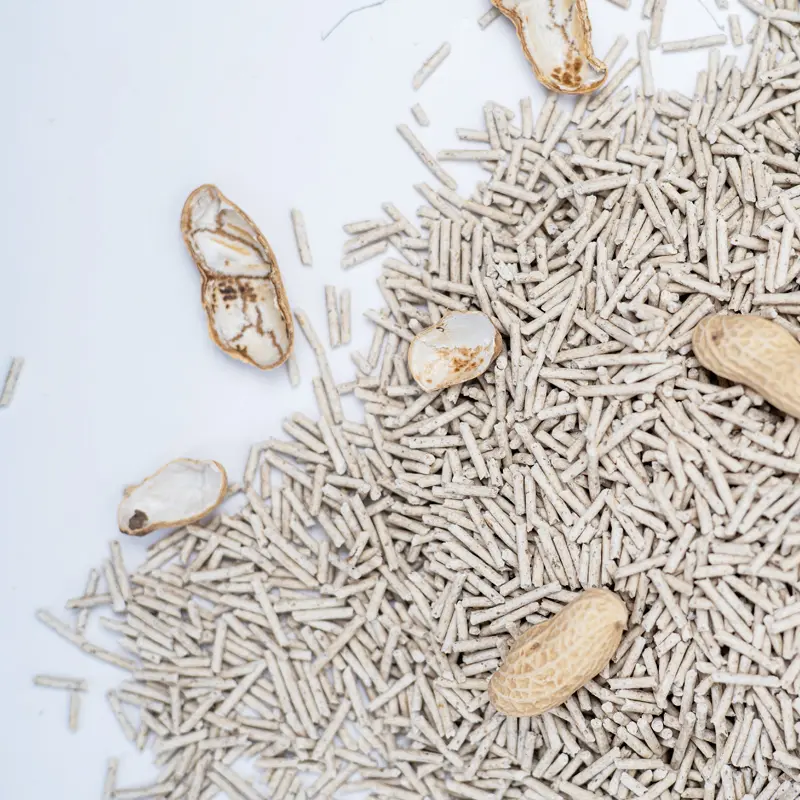
One of the key advantages of walnut cat litter is its low dust formula. Unlike some clay-based litters, walnut litter produces minimal dust when poured or scooped, reducing the risk of respiratory issues in both cats and their owners. Additionally, walnut litter is biodegradable and eco-friendly, making it a sustainable choice for environmentally conscious pet owners.
Walnut cat litter also boasts excellent clumping abilities, making it easy to clean and maintain the litter box. The clumps formed by walnut litter are firm and compact, preventing them from breaking apart during scooping and minimizing waste.
However, walnut cat litter may not be ideal for cats with nut allergies. Some felines may have sensitivities to walnut shells, leading to skin irritation or other allergic reactions. Additionally, walnut litter tends to be more expensive than traditional clay or corn-based litters, which may deter budget-conscious pet owners.
Here are the pros and cons of walnut cat litter:
Pros:
Natural Odor Control: Walnut cat litter is known for its natural ability to neutralize odors, helping to keep the litter box smelling fresh for longer periods. The natural properties of walnut shells effectively absorb and trap unpleasant smells without the need for added fragrances or chemicals.
Low Dust: Walnut cat litter tends to produce minimal dust compared to traditional clay-based litters. This is beneficial for both cats and their owners, as it reduces airborne particles that can irritate respiratory systems and cause discomfort.
Biodegradable: Walnut cat litter is biodegradable and environmentally friendly. Made from crushed walnut shells, it can break down naturally over time, reducing environmental impact and waste accumulation in landfills.
Clumping Ability: Many walnut cat litters have excellent clumping abilities, forming tight and strong clumps upon contact with moisture. This makes it easy to scoop and clean the litter box, resulting in less waste and easier maintenance.
Sustainable: Walnut cat litter is often sourced from renewable and sustainable materials. Walnut shells are a byproduct of the food industry, making them a eco-friendly choice for cat owners who prioritize sustainability.
Cons:
Potential Allergens: Some cats may have sensitivities or allergies to walnut shells, leading to skin irritation or other allergic reactions. It's important for pet owners to monitor their cat's behavior and health when transitioning to walnut litter.
Price: Walnut cat litter tends to be more expensive than traditional clay-based litters. The cost may deter budget-conscious pet owners, especially for households with multiple cats or large litter boxes.
Tracking: Walnut cat litter may track more easily than other types of litter, leading to litter being scattered around the litter box area and potentially tracked throughout the home on cats' paws.
Availability: Walnut cat litter may not be as widely available as other types of litter, making it more difficult to find in stores or online. Pet owners may need to purchase it from specialty retailers or order it online.
Appearance: Some pet owners may find the dark color of walnut cat litter less visually appealing compared to lighter-colored litters. However, this is a minor aesthetic concern compared to the litter's performance and benefits.
Specification
Specification | Description |
Granule Size | Medium to large granules, designed to mimic the texture of traditional clay litter, providing a comfortable surface for cats to use. |
Clumping Ability | Forms tight and strong clumps upon contact with moisture, making it easy to scoop and clean the litter box, minimizing waste and reducing maintenance efforts. |
Absorbency | Highly absorbent, capable of absorbing several times its weight in moisture, helping to control odors and keep the litter box fresh for longer periods between cleanings. |
Dust Level | Formulated to be low-dust or dust-free, minimizing airborne particles that can irritate cats' respiratory systems and cause discomfort, beneficial for both cats and their owners. |
Scent | Available in scented or unscented varieties. Scented options may feature light fragrances to help mask odors, while unscented options provide a fragrance-free alternative for cats with sensitive noses or preferences. |
Packaging Size | Sold in bags or containers of various sizes, ranging from small packs of a few pounds to larger bags of 20 pounds or more. Packaging size may vary depending on the brand and retailer. |
Ingredients | Made from crushed walnut shells, a natural byproduct of the food industry. Some products may contain additional ingredients or additives for enhanced performance or odor control. It's important to check the label for transparency. |
Biodegradability | Promoted for its biodegradable properties, can break down naturally over time, reducing environmental impact and waste accumulation in landfills. Information on biodegradability and composting compatibility may be provided. |
Corn litter vs walnut litter
Specification | Corn Cat Litter | Walnut Cat Litter |
Granule Size | Common granule sizes range from 1mm to 5mm | Medium to large granules, designed to mimic clay |
Clumping Ability | Forms tight and strong clumps upon contact with moisture | Forms tight and strong clumps upon contact with moisture |
Absorbency | Highly absorbent, capable of absorbing several times its weight in moisture | Highly absorbent, capable of absorbing several times its weight in moisture |
Dust Level | Many are formulated to be low-dust or dust-free | Formulated to be low-dust or dust-free |
Scent | Available in scented or unscented varieties | Available in scented or unscented varieties |
Packaging Size | Sold in various sizes, ranging from small packs to large bags | Sold in bags or containers of various sizes |
Ingredients | Made from natural corn kernels | Made from crushed walnut shells |
Biodegradability | Biodegradable, can be disposed of in compost or waste bins | Biodegradable, can break down naturally over time |
In conclusion, both corn cat litter and walnut cat litter offer unique advantages and characteristics that appeal to different preferences and priorities. Pet owners should consider factors such as odor control, clumping ability, dust levels, environmental impact, and potential allergens when choosing the right litter for their beloved feline companions. By selecting the most suitable litter, pet owners can ensure a clean, comfortable, and healthy environment for their cats.
We specialize in the production and wholesale distribution of premium-quality corn cat litter and walnut cat litter. Our products are meticulously crafted to provide superior odor control, excellent clumping performance, and utmost comfort for cats. We warmly welcome customers from around the globe to inquire about our offerings. Whether you're a pet store or distributor, we're here to meet your cat litter needs with quality and reliability. Feel free to reach out to us for more information or to place an order.
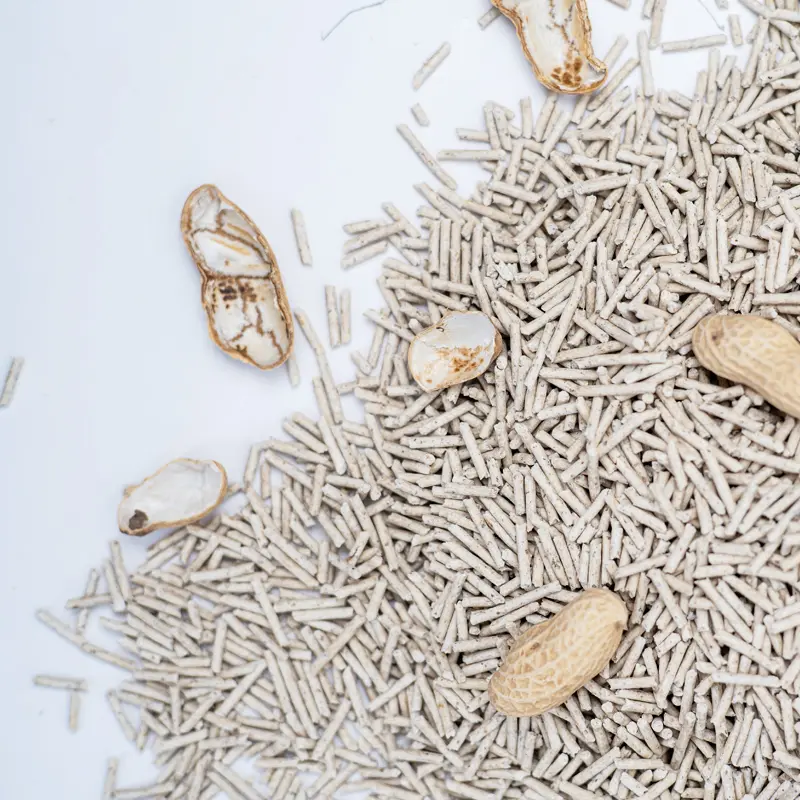
387.webp)
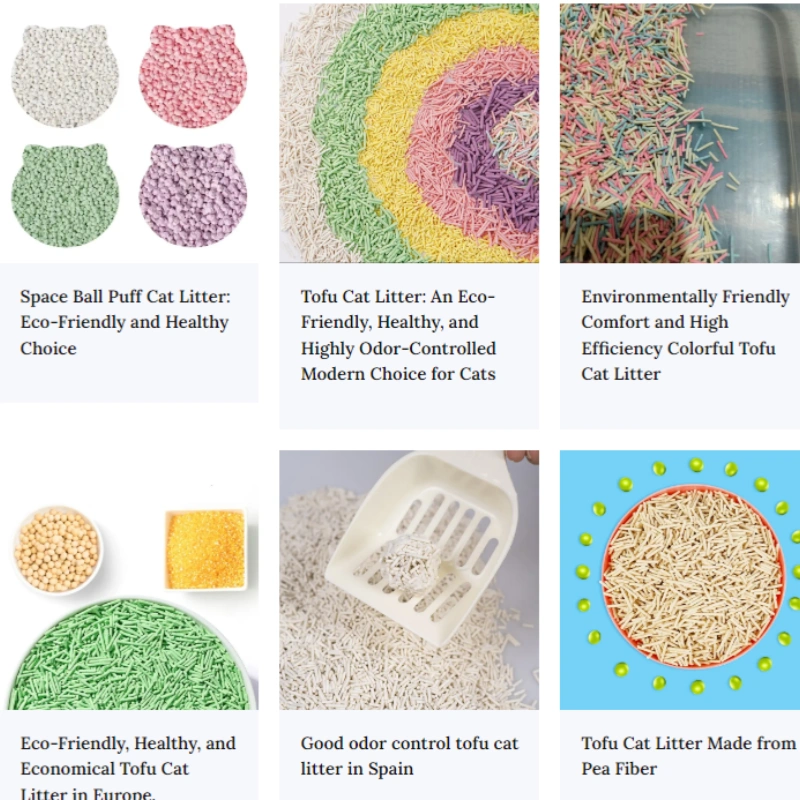
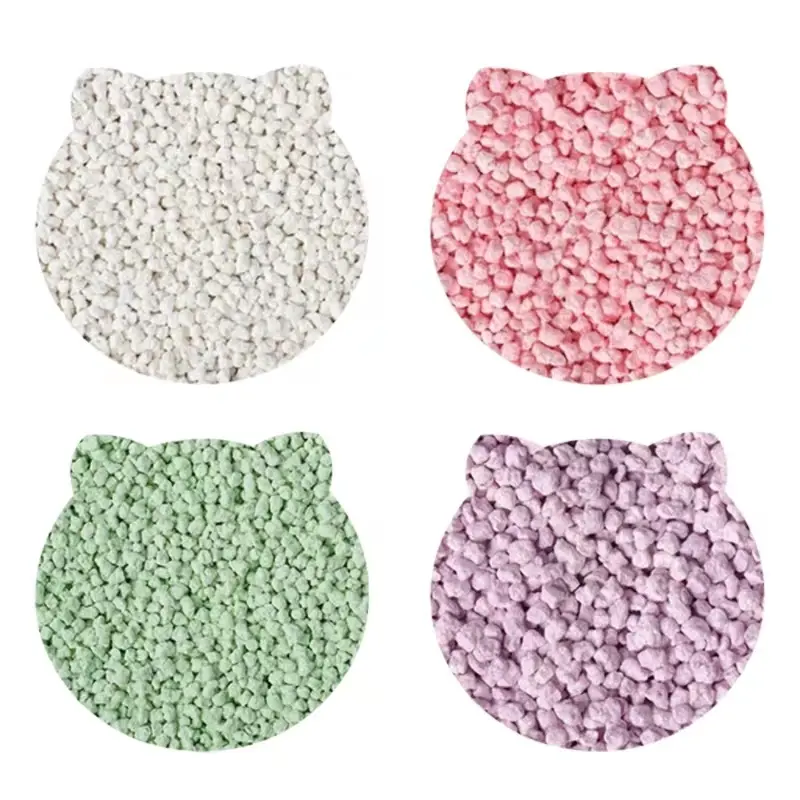
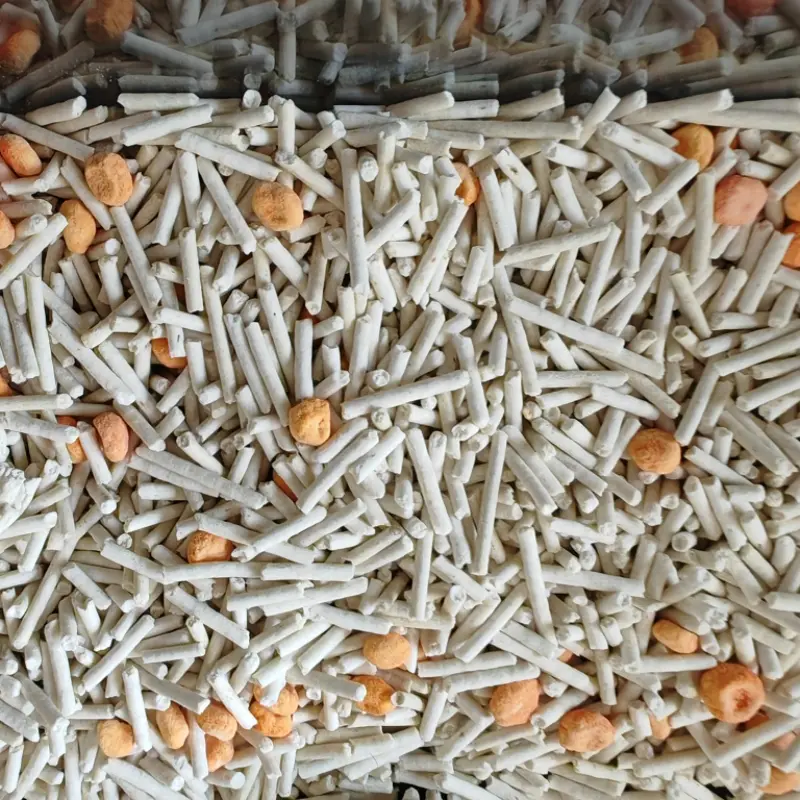
122.webp)
